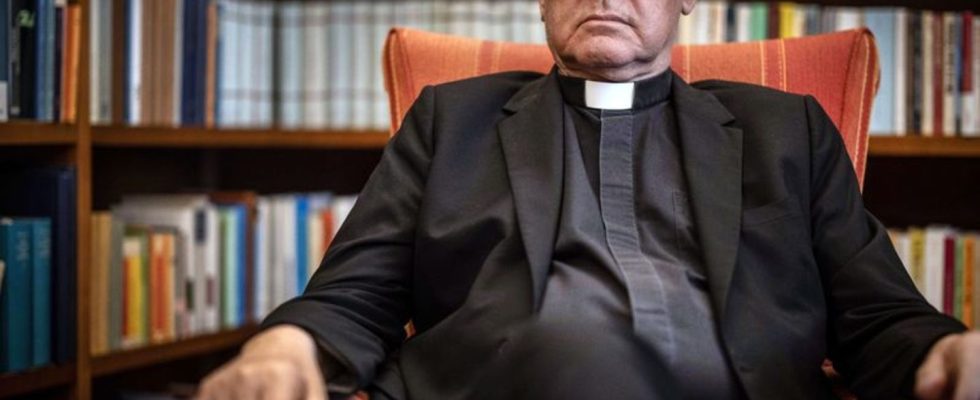Catholic Church
Cardinal Müller criticizes the World Synod
“Ultimately it is the case that the Pope, among his friends, issues a final document according to his own wishes. And that is entirely questionable,” says German Cardinal Gerhard Ludwig Müller. photo
© Oliver Weiken/dpa
Pope Francis has also appointed one of his internal church opponents as a voting participant at the world synod: Cardinal Gerhard Ludwig Müller. However, he suspects tactical reasons behind this.
“Ultimately it is the case that the Pope, among his friends, publishes a final document according to his own wishes. And that is definitely questionable.” It will remain unclear whether Francis is speaking here out of his papal mandate as head of the church or just as a kind of meeting leader summarizing what was said at the synod.
Müller was Bishop of Regensburg from 2002 to 2012 and prefect of the Roman Congregation for the Doctrine of the Faith, which oversees the purity of Catholic teaching, from 2012 to 2017. Afterwards, his term of office was no longer extended by Pope Francis, which is why the relationship between the two is considered strained. Nevertheless, the Pope appointed Müller to be a participant in the world synod.
54 women were admitted as voters
“That surprised me a bit,” admitted Müller. “I don’t belong to the Pope’s favorite circle of friends. But completely different motives may have played a role in the leadership of the synod. They perhaps wanted to avoid the impression of one-sidedness.”
365 voting members will take part in the conference from October 4th to 29th. The vast majority are bishops, but there are also other clergy and lay people – non-clergy. For the first time in the history of the Catholic Church, 54 women were admitted as voting members. In addition, there are experts who are not allowed to vote. Among other things, there will be a debate about co-determination and a different way of dealing with things in the church, but also about controversial topics, such as the position of women or the treatment of homosexuals.
Müller criticized the fact that the mission and topics of the synod were kept very vague. There is therefore a danger that the synod will lose sight of what is actually Catholic and slide into a general sociology. “In the end, this could also be a plea from the United Nations or other charitable organizations, along the lines of: We should, we should… But the actual purpose of the church is not to get involved in the public debate like a non-governmental organization.”
Müller: Consultations behind closed doors
Müller is also critical of the fact that the synod’s deliberations take place behind closed doors. This obviously serves the purpose of retaining sovereignty over interpretation. “But it won’t work, on the contrary. Every participant will talk to their acquaintances, they will spread the word, and so the word will spread. Some may even leave their cell phones running. 460 people cannot be controlled – that is after all, no Chinese party congress.”
Despite these reservations, Müller said he was willing to work constructively. He neither closes himself to discussing current topics such as climate change or artificial intelligence nor is he fundamentally against the inclusion of lay people and non-consecrated believers. “The church is not an army or a state administration with an above and a below,” he emphasized. “We all have a direct relationship with God through baptism. The idea of a leading and an obeying caste is completely wrong.” There is also a legitimate diversity of opinion within the church when it comes to the interpretation of certain questions.
“I hope that we can talk to each other,” said Müller. “It shouldn’t fail because of me, I’ve spent my life dealing with the thoughts of others and those who think completely differently.” He has no problem approaching other people. “But it would be important to me that we not only listen to each other, but above all to listen to Jesus Christ. Because it’s about what God says – not about our ideas.”

